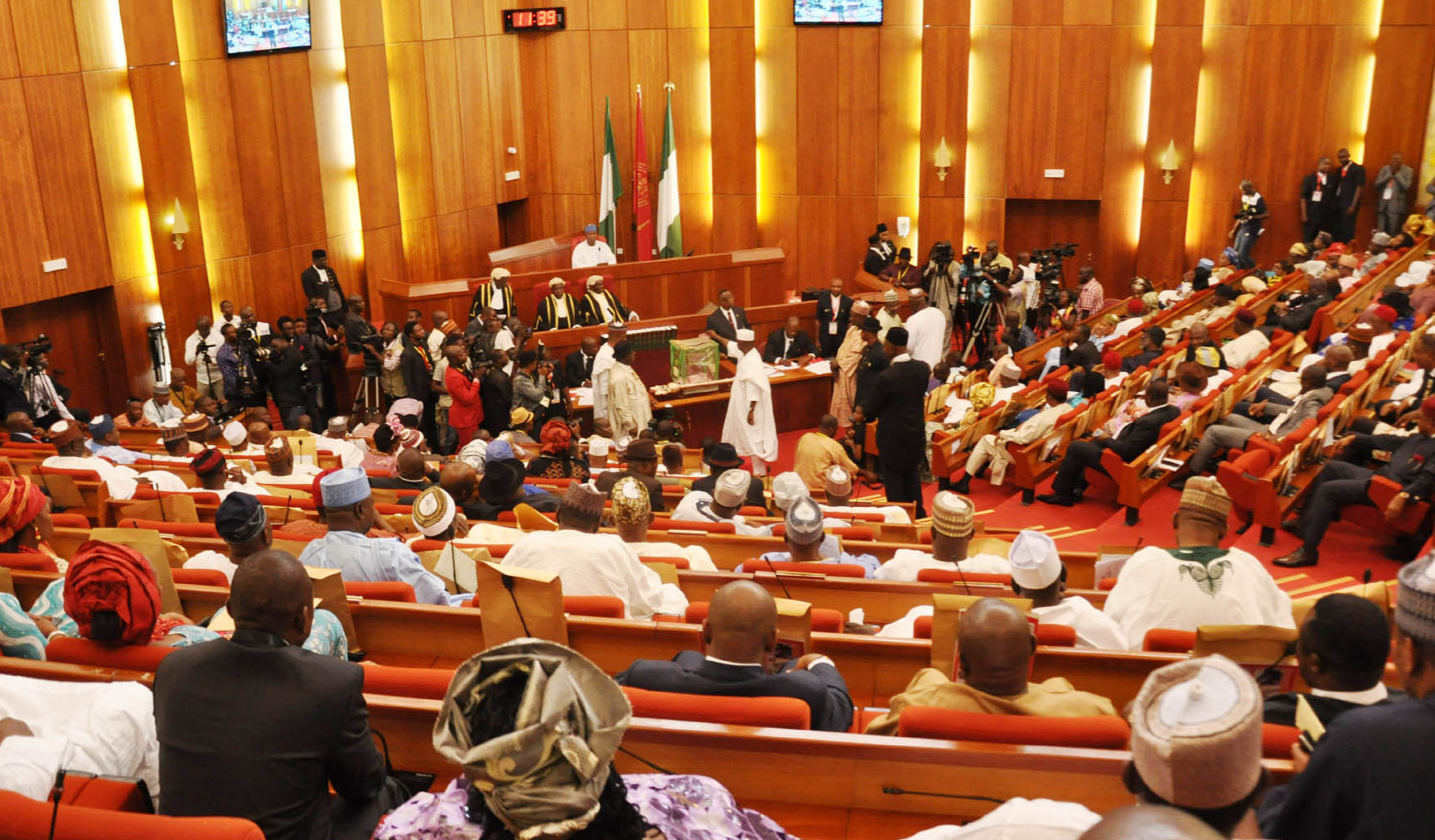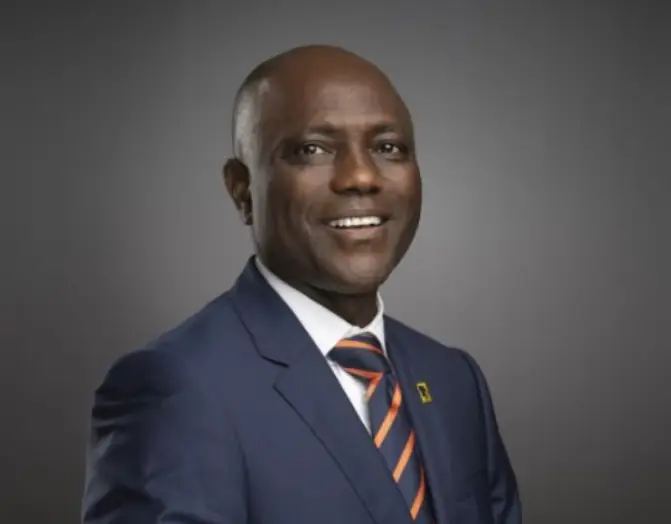Business
Senate Passes Budget Of N17.12trn, Adjourns Till January 2022 (Budget Details)
Published
2 years agoon
By
Editor
Barely one hour after passing the 2022 national budget, the Nigerian Senate, on Wednesday adjourned plenary till January 18, 2022, for Christmas break.
This was announced by the President of the Senate, Dr. Ahmad Lawan, after the Senate reconvened plenary to approve votes and proceedings of the sitting earlier held, to pass the budget for the 2022 fiscal year.
The Senate passed a budget of N17.12tr, as against the N16. 3tr proposed by President Muhammad Buhari in October, 2021, recording a huge difference of about N800bn.
Chairman of Senate Committee on Appropriation, Senator Barau Jibrin, while presenting the report at the plenary, said the revenue projection for the 2022 budget was predicated on the Medium Term Expenditure Framework/Fiscal Strategy Paper approved by the National Assembly.
He recommended that additional revenues discovered should be provided to the Works and Housing Ministry for funding of critical projects, Independent National Electoral Commission (INEC), for the 2023 General Elections, Defence and the National Population Commission for the 2022 Population Census.
A breakdown of recurrent expenditure, as passed by the Senate, shows that N61,079,757,342 was budgeted for the Presidency, N996,09 1,292,618 for Defence, N79,243,483,198 for the Ministry of Foreign Affairs, N55,796,274,038 for Federal Ministry of Information and Culture, N257,626,461,524 for Ministry of Interior, N7,919,353,247 for Office of the Head of Civil Service of the Federation, and N4,476,854,068 for the Auditor General for the Federation.
While the Federal Ministry of Police Affairs received N518,532,292,470, the Ministry of a communications and Digital Economy got N23,387,996,618, National Security Adviser – N155,820,2 14,009, Infrastructure Concession Regulatory Commission – N1,344,674,257, Secretary to the Government of the Federation – N62,575,420,244, Federal Ministry of Special Duties and Inter-Governmental Affairs – N4,439,614,685, Federal Ministry of Agriculture and Rural Development – N75,544,228,649, and Federal Ministry of Finance, Budget and National Planning – N28,604, 104,969.
READ ALSO: NDE Distributes Starter Packs To 20 Trainees In Bauchi
In addition, the Federal Ministry of Industry, Trade and Investment received N17,966,745,438, Federal Ministry of Labour and Employment – N14,453,726,978, Federal Ministry of Science, Technology and Innovation – N49,683,523,165, Federal Ministry of Transport – N15,892,132,819, Federal Ministry of Aviation – N7,692,548,460, Federal Ministry of Power – N6,262,156,943, and Ministry of Petroleum Resources – N30,502,257, 191.
Also, N12,038,392,758 was budgeted for the Ministry of Mines and Steel Development, N31,935,604,197 for Federal Ministry of Works and Housing, N870,534,226 for National Salaries, Incomes and Wages Commission, N456,245,928 for Fiscal Responsibility Commission, N10,669,058,320 for Federal Ministry of Water Resources, N26,761,780,448 for Federal Ministry of Justice, and N11,655,253,717 for the Independent Corrupt Practices and Related Offences Commission.
Others are Federal Capital Territory Administration – Nil, Federal Ministry of Niger Delta – N2,569,680,304, Federal Ministry of Youth and Sports Development – N185,489,102,966, Federal Ministry of Women Affairs – N2,103,758,084, Federal Ministry of Education – N593,473,925,256, Federal Ministry of Health – N462,858,698,619, Federal Ministry of Environment – N22,796,647,842, National Population Commission – N8,880,618,082, and Ministry of Humanitarian Affairs, Disaster Management and Social Development – N7,669,972,542.
Other Executive bodies such as the Federal Code of Conduct Bureau received N2,343,845,401, Code of Conduct Tribunal – N830,910,644, Federal Character Commission – N3,272,871,999, Federal Civil Service Commission – N1,217,473,478, Police Service Commission – N926,505,919, and Revenue Mobilization, Allocation and Fiscal Commission – N2,337,230,632.
You may like

The Central Bank of Nigeria (CBN) started fresh and direct sales of US dollars at N1,021 per dollar to Bureau De Change operators.
Nigeria’s apex bank disclosed this in a circular signed by its Director of Trade and Exchange Department Hassan Mahmud.
“We write to inform you of the sale of $10,000 by the Central Bank of Nigeria (CBN) to BDCs at the rate of N1,021/$1. The BDCs are in turn to sell to eligible end users at a spread of NOT MORE THAN 1.5 percent above the purchase price,” the circular posted on its website read.
READ ALSO: Tinubu Unveils African Counter-Terrorism Summit
“ALL eligible BDCs are therefore directed to commence payment of the Naira deposit to the underlisted CBN Naira Deposit Account Numbers from today, Monday, April 22, 2024, and submit confirmation of payment, with other necessary documentations, for disbursement of FX at the respective CBN Branches.”
CBN’s move is coming as the naira is recording a slight depreciation against the dollar after weeks of gains.
In late March, the bank also sold $10,000 to each of the eligible Bureau De Change (BDC) operators in the country at the rate of N1,251/$1.
READ ALSO: Mixed Reactions Trail Video Of Couple’s Customised N200 Notes
Like in the most recent sales, it warned BDCs against breaching terms of the dollar sales, vowing to sanction defaulters “including outright suspension from further participation in the sale”.
The fortunes of the naira have fallen sharply since President Bola Tinubu took over in May. Inflation figures have reached new highs and the cost of living hitting the rooftops.
Nigeria’s currency slid to about N1,900/$ some months ago at the parallel market. But in recent weeks, it has gained against the dollar.
The Nigerian authorities have also doubled down on their crackdown against cryptocurrency platform Binance and illegal BDCs.
On March 1, the CBN revoked the licences of 4,173 BDCs over compliance failures.

Olusegun Alebiosu has been appointed as the Acting Managing Director/Chief Executive Officer of First Bank of Nigeria Limited (FirstBank Group), effective April 2024.
Alebiosu steps into this pivotal role from his previous position as the Executive Director, Chief Risk Officer, and Executive Compliance Officer, a position he held since January 2022.
Alebiosu brings to the helm of FirstBank over 28 years of extensive experience in the banking and financial services industry. His expertise spans various domains including credit risk management, financial planning and control, corporate and commercial banking, agriculture financing, oil and gas, transportation, and project financing.
READ ALSO: JUST IN: Access Holdings Names New Acting CEO
Having embarked on his professional journey in 1991 with Oceanic Bank Plc. (now EcoBank Plc.), Alebiosu has held several notable positions in esteemed financial institutions.
Prior to joining FirstBank in 2016, he served as Chief Risk Officer at Coronation Merchant Bank Limited, Chief Credit Risk Officer at the African Development Bank Group, and Group Head of Credit Policy & Deputy Chief Credit Risk Officer at United Bank for Africa Plc.
Alebiosu’s academic credentials further enrich his professional profile. He is an alumnus of the Harvard School of Government and holds a Bachelor’s degree in Industrial Relations and Personnel Management. Additionally, he obtained a Master’s degree in International Law and Diplomacy from the University of Lagos, as well as a Master’s degree in Development Studies from the London School of Economics and Political Science.
READ ALSO: Meet Newly Appointed Union Bank CEO
A distinguished member of various professional bodies, including the Institute of Chartered Accountants (FCA), Nigeria Institute of Management (ANIM), and Chartered Institute of Bankers of Nigeria (CIBN), Alebiosu is renowned for his commitment to excellence and ethical practices in the banking sector.
Beyond his professional endeavors, Alebiosu is known for his passion for golf and adventure. He is happily married and a proud parent.
With Alebiosu’s appointment, FirstBank of Nigeria Limited anticipates continued growth and innovation under his leadership, reinforcing its position as a leading financial institution in Nigeria and beyond.
Business
CBN Gives New Directive On Lending In Real Estate
Published
2 weeks agoon
April 17, 2024By
Editor
The Central Bank of Nigeria, CBN, has released a new regulatory directive to enhance lending to the real sector of the Nigerian economy.
The directive, issued on April 17, 2024, with reference number BSD/DIR/PUB/LAB/017/005 and signed by the Acting Director of Banking Supervision, Adetona Adedeji, signifies a notable shift in the bank’s policy towards a more contractionary approach.
In line with the new measures, the CBN has reduced the loan-to-deposit ratio by 15 percentage points, down to 50 per cent.
This move aligns with the CBN’s current monetary tightening policies and reflects the increase in the Cash Reserve ratio rate for banks.
READ ALSO: JUST IN: CBN Gov Sacks Eight Directors, 32 Others
The LDR is a metric used to evaluate a bank’s liquidity by comparing its total loans to its total deposits over the same period, expressed as a percentage.
An excessively high ratio may indicate insufficient liquidity to meet unexpected fund requirements.
All Deposit Money Banks are now mandated to adhere to this revised LDR.
The CBN has stated that average daily figures will be utilised to gauge compliance with this directive.
Furthermore, while DMBs are encouraged to maintain robust risk management practices in their lending activities, the CBN has committed to continuous monitoring of adherence and will adjust the LDR as necessary based on market developments.
READ ALSO: JUST IN: CBN Increases Interest Rate To 24.75%
Adedeji has called on all banks to acknowledge these modifications and adjust their operations accordingly. He emphasised that this regulatory adjustment is anticipated to significantly influence the banking sector and the wider Nigerian economy.
The circular read in part, “Following a shift in the Bank’s policy stance towards a more contractionary approach, it is crucial to revise the loan-to-deposit ratio policy to conform with the CBN’s ongoing monetary tightening.
“Consequently, the CBN has decided to decrease the LDR by 15 percentage points to 50 per cent, proportionate to the rise in the CRR rate for banks.
“All DMBs must maintain this level, and it is advised that average daily figures will still be applied for compliance assessment.
“While DMBs are urged to sustain strong risk management practices concerning their lending operations, the CBN will persist in monitoring compliance, reviewing market developments, and making necessary adjustments to the LDR. Please be guided accordingly.”

Delta Police Kill Suspected Kidnapper, Rescue Victims, Arrest Armed Robber Cultist

Gunmen Assassinate Governor Aiyedatiwa’s Campaign Coordinator In Ondo

Five Injured As Vehicles Collide In Lagos
Trending

 News4 days ago
News4 days agoDrama! Supporters Of Yahaya Bello Perform Rituals to Prevent His Arrest By EFCC [Video]

 Entertainment5 days ago
Entertainment5 days agoNollywood Actor, Zulu Adigwe Is Dead

 News5 days ago
News5 days agoVIDEO: Force PRO Orders Arrest Officers Caught On Video Bashing Driver’s Car

 News4 days ago
News4 days agoEdo: FRSC Threatens Sanction On Truck Drivers Loading Goods, Passengers Together

 Headline3 days ago
Headline3 days agoSaudi Arabia Opens First Alcohol Store, Nigerian Muslims React

 Metro5 days ago
Metro5 days agoEdo Cultists Kill Rival In Daughter’s Presence, Abandon Getaway Car

 Headline3 days ago
Headline3 days agoVIDEO: Meet Nigerian Pastor Who Predicted World Will End April 25

 News3 days ago
News3 days ago243 Passengers Cheat Death As Air Peace Plane Makes Emergency Landing At Lagos Airport

 Metro4 days ago
Metro4 days agoJUST IN: Four-year-old Boy Dies In Abuja School, Parents Suspect Foul Play

 Metro4 days ago
Metro4 days agoJUST IN: Protesters Storm APC Secretariat, Demand Ganduje’s Resignation























